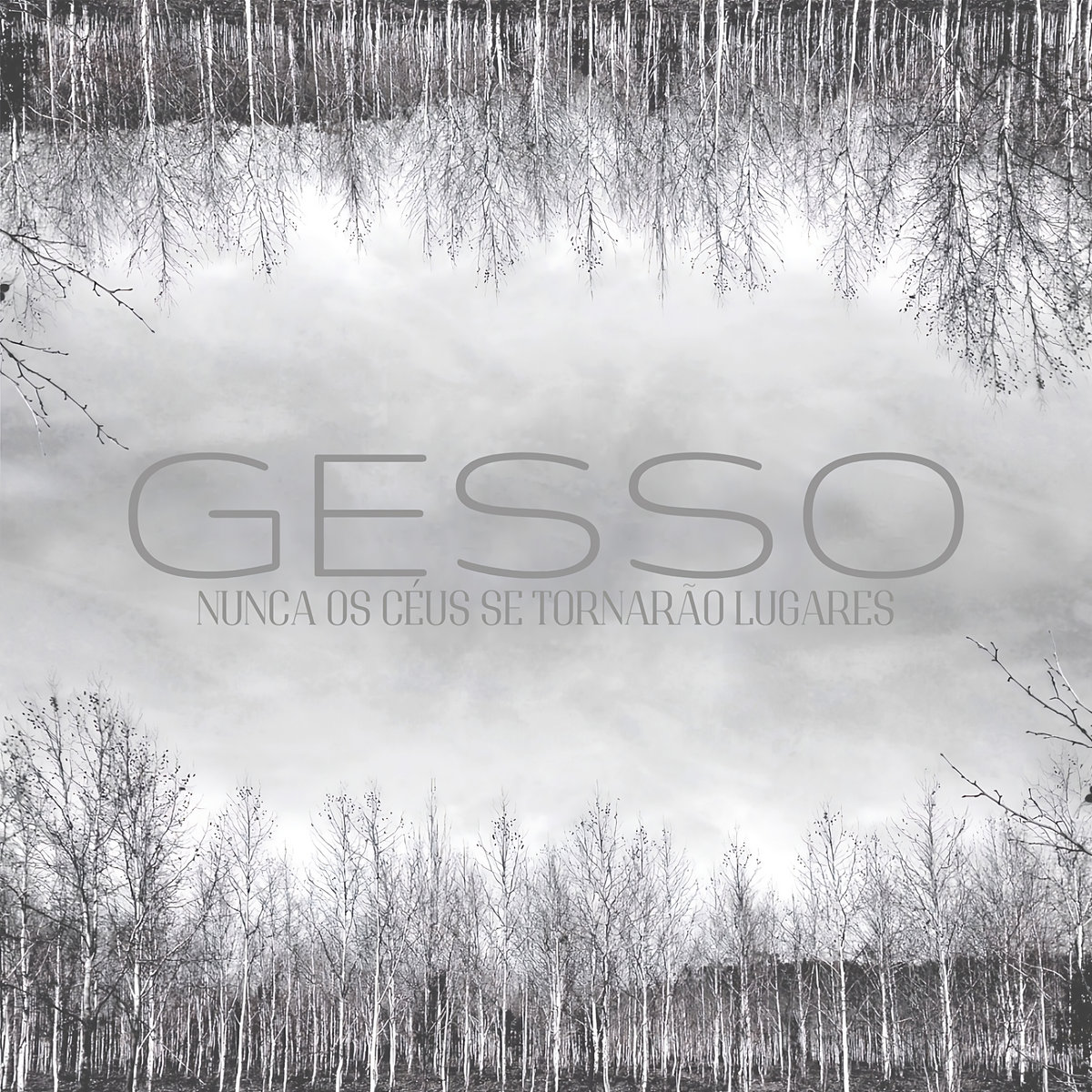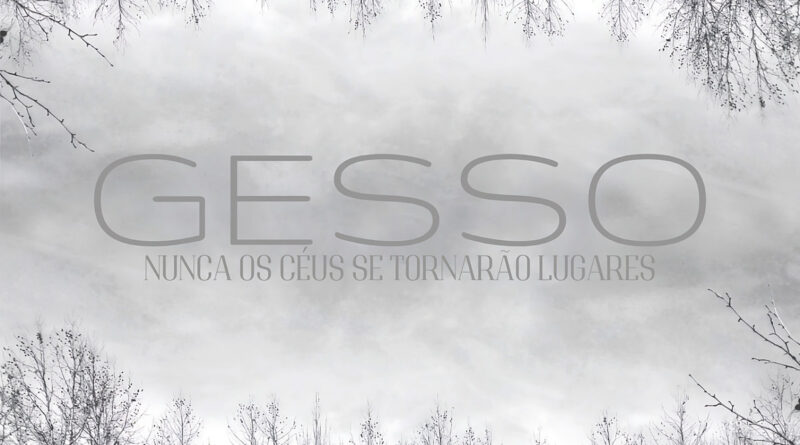ALBUM REVIEW: Nunca Os Céus Se Tornarão Lugares – Gesso
After laying dormant in northern Portugal for the last decade, GESSO resurface from the depths of Santo Tirso armed with hulking proto-doom riffs and eerie synthesiser. Ten years has seen a change in the band, as they transition out of their colourful psychedelic stoner era and move into the shadow darkness of PENTAGRAM-esque doom. Nunca Os Céus Se Tornarão Lugares is a hulking mass of droning doom riffs and Portuguese chants that remind you of voices from the past echoing through time. With deep layers of fuzz and strange synthesisers, GESSO construct a space age temple dedicated to gloom.
For some this change in creative direction has the potential to be quite jarring. Gone are the warm bass riffs and tranquil voice harmonies, the drums are stripped back and the rich psychedelic guitar melodies are nowhere to be seen. Instead GESSO have dedicated themselves to a bleaker, gloomier sound that’s more in line with traditional doom. The heavier atmosphere is augmented by strange sci-fi synthwave and ominous vocal chants. Nunca Os Céus Se Tornarão Lugares is certainly a shadowier and more enigmatic album compared to the band’s last release, 2013’s Howling Grace.
One thing that stands out about the album is that there is an overt BLACK SABBATH and PENTAGRAM influence. GESSO have leaned heavily into these influences and while that isn’t a bad thing it does dull some of the impact that the album has on you, especially when comparing it to the band’s previous album. In terms of the riffs and song structure, it feels more templated and restricted. By moving away from their more free-flowing psych style that was abundant with expression, it feels like GESSO have limited themselves and dulled their own light. You are left wondering what prompted this shift in sound, but at the same time you can appreciate the band wanting to branch out and try something new, even though it feels like this style doesn’t really suit them.
Despite this, GESSO’s experimentation with spacey synthesisers, whistling melodies and more traditional Portuguese vocal chants give Nunca Os Céus Se Tornarão Lugares an intriguing element that keeps your attention. The synthesisers are always moving and evolving, weaving their way throughout the album with a variety of pitches, tones and sounds. This gives the album a spacey, enigmatic, sci-fi layer as arpeggiators and synth swells keep the record moving. Alongside the chants and vocal harmonies that come from another era, the album feels like it’s in purgatory, one foot in the past the other in the future and how both can split the present moment in more ways than one if you let it. Even if you’re unable to understand the Portuguese lyrics, you do get a sense of narrative as the album progresses, although Nunca Os Céus Se Tornarão Lugares is enigmatic enough that it any narrative for the album is completely open to interpretation.
Não Me Levem opens the album with a long, fuzzy drone, swaying drum beats and melancholic vocals. Here you instantly hear the influences of BLACK SABBATH and PENTAGRAM. Ultra fuzzy and slow, this track is for all intents and purposes a traditional doom song, but while it is a strong song, it doesn’t really stand out. Cinzas is slightly more intriguing, starting out with an ominous bass intro, minimal guitars and soft vocals that give you a false sense of security. Then with layers of fuzzing feedback slowly growing, the song erupts into a big doom riff. It is here that the band’s experiment with synthesisers beings, but the morse code style synth can be quite distracting and takes away from the catchiness of the whistled melody.
Homens Se Tornam Réus relies more heavily on the synthesisers and vocals to build the atmosphere while the drums shuffle underneath. The closing track is the nearly ten-minute Berço Em Flor. It utilises that BLACK SABBATH rain and church bell combo before launching into a SABBATH-esque riff, which is good but feels uninspired. Thankfully the song is redeemed by its interesting vocals, but overall the album feels quite flat. Due to each song having a similar tempo and following a similar riff pattern, the lack of variation can become tedious, which is a shame considering how the band have their roots in intricate and hypnotic psychedelia.
Ultimately Nunca Os Céus Se Tornarão Lugares is a pretty run of the mill trad/proto-doom album with some experimental features. In some ways the album feels confused and because of that it’s limited in what it can do. It’s clear that GESSO want to experiment and push their creative boundaries but unfortunately this time it hasn’t really paid off.
Rating: 6/10

Nunca Os Céus Se Tornarão Lugares is set for release on April 14th via Slowdriver Productions.
Like GESSO on Facebook.

